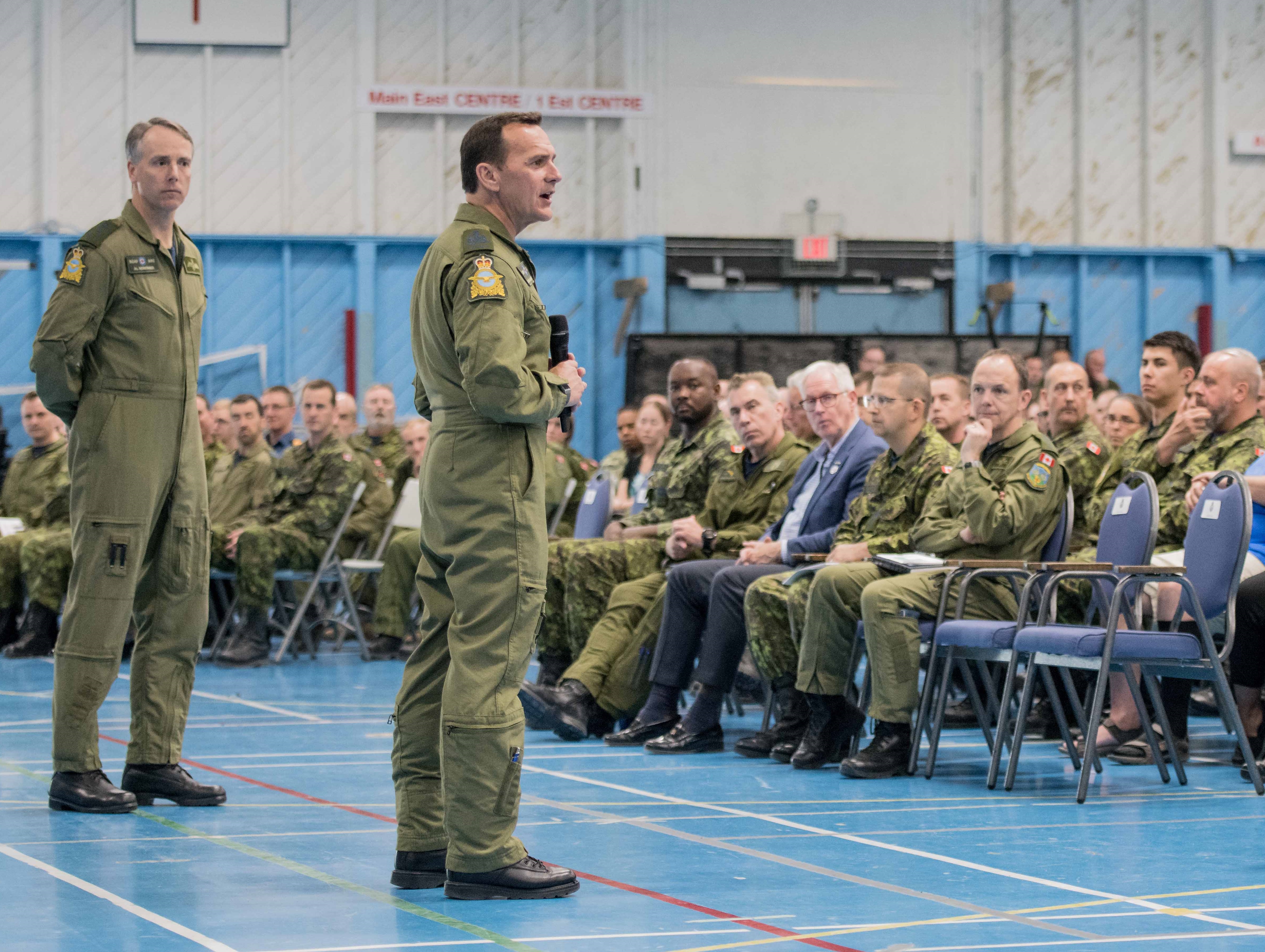Command Team Perspective – OP TALENT Update
Magazine Article / November 21, 2019
Since we launched Op Talent this summer, work continues to progress on a wide variety of initiatives that put our people first.
As these important initiatives gain momentum, you are going to hear a lot about retention ─ particularly concerning the pilot occupation ─ which has been prioritized under the CDS’s Op Experience directive. This remains one of the RCAF’s most pressing challenges, which needs to be addressed as a priority, though we recognize that aviators who maintain our equipment, ensure it is available and support our operations are just as important to mission success. No one occupation is more valuable than another – we are an RCAF Team. Ensuring this team receives quality support will remain our top priority.
Retention is only one aspect - it is not enough to keep existing aviators serving; we must build experience throughout the RCAF. Ultimately, we are working to get our experienced personnel back into the line squadrons, tactical units, schoolhouses and operational training units so they can use their well-honed skills to train and mentor our newest members. To support this approach with pilots, we are hiring a cohort of contracted Instructor Pilots for basic flying training to free up RCAF personnel so they can remain in line and operational training squadrons. We are also pursuing training opportunities through our Allies, accepting qualified foreign pilots and re-enrollees to the RCAF. Similarly, the Fighter Force Maintenance Renewal Program is in its second year, and we are forecasting an additional 20 technicians being added into our line units (from 2nd line units) to further enhance our maintenance capacity and experience. A lot of work is going on in this regard to re-build our flight line experience. This approach will be expanded into many other important areas in the years to come. Ultimately, we must continue to “Focus on the Squadron and our tactical level units.”
We fully understand the criticality of retaining our experienced personnel as it is the daily transfer of knowledge and skill between experienced and inexperienced members that propels the RCAF forward. We have been encouraging leaders at all levels to consider how they make decisions concerning the employment of their people, and to use whatever means within their authority to better their quality of service and work-life balance. Alternate work arrangements, including flexible working hours, limiting or managing shifts, and offering the option to work remotely, should be considered whenever practicable. We are delighted to see this philosophy taking root within the RCAF.
The RCAF Command Team is listening and resources have been dedicated to work these issues every day. Your concerns matter; the RCAF needs to be an employer of choice. In 2017, the Restricted Release Period (RRP) for pilots was modified to protect the training investment in pilots by amending RRP for pilot OTUs, recertification training and OUTCAN flying postings. The amendment did not have the desired effect. In addition, nothing was amended to protect the largest investment in training which is at the beginning of a pilot’s career. Therefore, in coordination with CMP, a CANFORGEN was just released announcing a reduction to the RRP for pilots who will conduct a fleet recertification course or an OUTCAN flying tour. We reduced the RRP after flying service outside Canada from three years to the planned duration of their posting out of the country. We reduced the restricted release period from two years to one for pilots requiring recertification training. We increased the initial period of restricted release for pilots from seven to ten years, post-wings for new enrollees or new occupation transfers, and we maintained the three-year RRP for pilots going through OTUs, although exemptions are now in place for pilots posted to 2 or 3 CFFTS, 419 Squadron and 431 Squadron. These changes demonstrate the RCAF has listened to its members and value their loyalty while ensuring we will be able to deliver operational output and train the next generation.
Another initiative undertaken to better optimize and align efforts at the tactical-level relate to readiness training. By re-examining the training required by RCAF personnel so that it is conducted in a manner consistent with deployment roles while providing flexibility to address mission-specific requirements, better balance has been achieved. We expect these changes will result in a reduction in time required to achieve the levels of Deployment Readiness and High Readiness on the order of approximately one training week per person per year. This time can now be reinvested into either higher priority training for primary roles, or in personal administration or even leave.
We are also listening to our more junior personnel. Significant work is currently underway to re-sequence the Avionics (AVS) Technician training. By making smart changes to the training pipeline, we hope to not only reduce the amount of time it takes to qualify an AVS Technician to perform maintenance on their first fleet by five to 17 months, but also provide better support to their families at the beginning of their careers in the RCAF.
While progress is ongoing, several initiatives will require extra collaboration and continued efforts to ensure success. We are confident that we will continue to deliver positive change moving forward. It is important that aviators of all ranks continue to share their ideas and opinions so that we can make our Op Talent efforts successful in the long run.
